Papers by Jordana Leavesley
World War II was the bloodiest war in human history, with three times the number of civilians dyi... more World War II was the bloodiest war in human history, with three times the number of civilians dying than military personnel. While it was a quintessentially just war, the means employed were often not. Air raids and the terror and panic that came with them were the greatest example of a world at total war. World War II became a conflict without civilian or military boundary and of diminishing moral standards, along with a lack of reverence for human life which led to events such as the Holocaust. The actions of both the Allies and the Axis powers constituted war crimes and genocide. These actions would not have been possible without the theatre of total war.
Carthage, a spectacularly prosperous city and once one of the largest in the western Mediterranea... more Carthage, a spectacularly prosperous city and once one of the largest in the western Mediterranean, was destroyed by Rome in an act that was arguably genocide. While no literary or historical records from the city survive, by combining archaeological remains with Greek and Roman sources, a greater understanding of Carthage and its impact on the western world can be obtained. This includes looking at the city’s Phoenician heritage, its ships, navigational skills and trade, its agriculture, manufacturing and art, its political systems, taxation of colonies and the threat it posed to Rome. When all of these things are considered, the conclusion is inescapable – Carthage played a major role in the formation of the Mediterranean world and civilisation as a whole is poorer for its loss.
Troy is a land of myth; Troy is also a land of extensive archaeological remains and four thousand... more Troy is a land of myth; Troy is also a land of extensive archaeological remains and four thousand years of history. From these remains we understand the defensive measures used by the inhabitants. We understand how their streets were laid out and we understand how they worshipped. The ruins of Troy reveal a great deal, but it is the stories that continue to inspire artists that help complete the picture of Troy and, in doing so, allow us to fully glimpse into the past.
Western civilisation is said to have begun in Ancient Greece. The fifth century BCE was the golde... more Western civilisation is said to have begun in Ancient Greece. The fifth century BCE was the golden age of the city of Athens, with art, the economy and the new notion of democracy thriving. The Ancient Greeks developed words to describe the world around them, such as anarchy, astronomy, comedy, diplomacy, drama, economics, mathematics, music, philosophy, poetry, theatre, tyranny and even zoology. Their alphabet was taken from the Phoenicians, but unlike the Phoenicians, they used it to write history, philosophy, poetry and plays. These plays and the theatrical conventions invented alongside them reveal the lives, values and relationships of Athenian citizens; and the impact of Ancient Greek theatre can still be seen over two and a half thousand years later.
There are many things not known about Shakespeare, but one thing is quite certain; he did not wri... more There are many things not known about Shakespeare, but one thing is quite certain; he did not write his plays with the thought they would one day be read by a group of teenagers stuck in the purgatory of last period English. Treating Shakespeare as any other English text that needs to be analysed will not generate student interest. Reading the plays is not enough; the best English teachers understand that plays were written to be performed and therefore make use of drama skills in their classrooms. Students presented with the opportunity to learn Shakespeare through the use of props, gesture, rhythm and performance, along with language, are not only more likely to enjoy the study, but also to gain a better understanding of the text.
Genocide is a word that conjurors the darkest aspects of humanity. It is the crime of crimes; the... more Genocide is a word that conjurors the darkest aspects of humanity. It is the crime of crimes; the unthinkable deed that is largely considered to be a product of modernity. The word itself did not exist prior to the Twentieth Century, therefore neither the ancient Greeks nor the ancient Romans held it as a conceptual category. That does not mean they did not commit acts of genocide in their all-encompassing desire for imperial expansion, with the ancient cities of Melos and Carthage being two such victims of this fate.
When The Australian and New Zealand Army Corps (ANZAC) entered into World War I, they changed the... more When The Australian and New Zealand Army Corps (ANZAC) entered into World War I, they changed the future of two countries, in particularly that of Australia, where more significance is now placed on ANZAC Day than on Australia Day. The notion of Australian identity was largely formed on the beach of what is now known as ANZAC Cove and the sentiment the Australian public feel for ANZAC Day plays an important role in demonstrating the changing attitude and values of a society over time. Ultimately though, the reaction of the public comes not from the past, but from the politics of the present day.
When the Cold War began, music exploded. The study of this music enables us to understand and ana... more When the Cold War began, music exploded. The study of this music enables us to understand and analyse the Cold War because music allows us to access the psyche of a period in time. Throughout the Cold War, popular music was there to explain how ordinary people felt about events that were often out of their control. Jazz, rock and roll, folk music, Vietnam protests, doomsday songs and much more provided a common understanding for people who neither understood, nor agreed with the actions of their government. This paper demonstrates that when it comes to learning about the Cold War, there is no better cultural reference than popular music.
Much of the material culture and written sources of the New Kingdom relate to the rulers and the ... more Much of the material culture and written sources of the New Kingdom relate to the rulers and the elite. Despite this, we can deduce what life would have been like for the average Egyptian in New Kingdom Egypt.
Considering gender in order to revise our understanding of class, means building a bridge across ... more Considering gender in order to revise our understanding of class, means building a bridge across fields of study to better see how they intersect. The industrial revolution and growth of capitalism saw an impact in the roles of women in the workforce and at home. Though the class system has been studied in depth from an entirely male perspective, relatively few studies have considered the impact women had in the era, however, to better understand class as a whole, we need to look at it with an understanding of the part gender played.
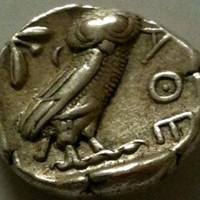
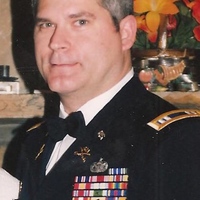
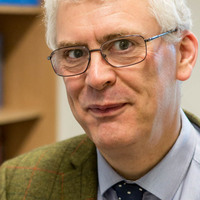


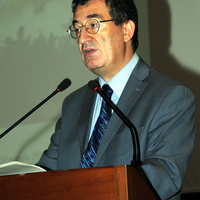

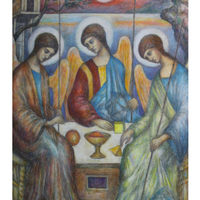



Uploads
Papers by Jordana Leavesley